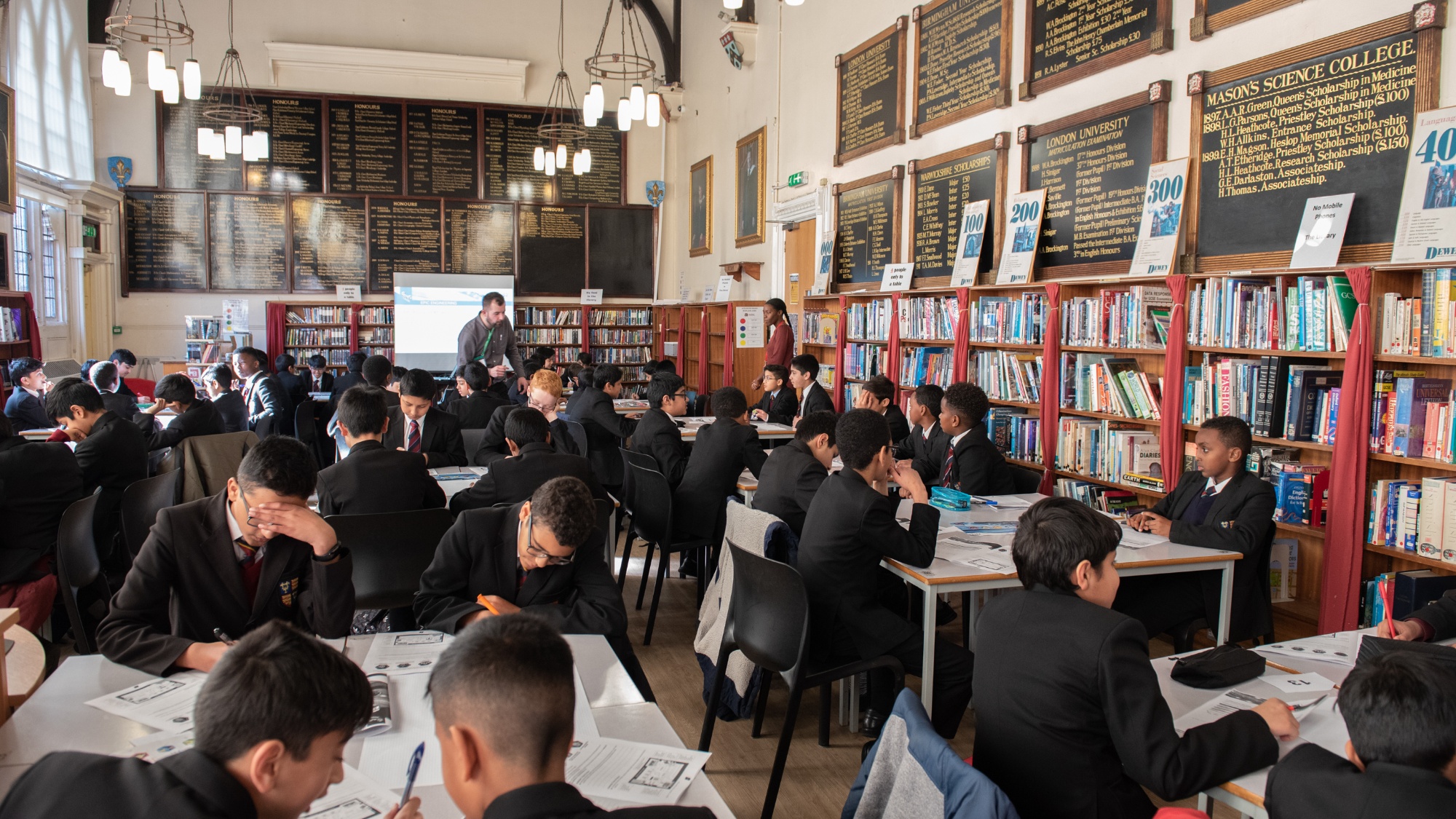Further education
What and where to study, and when to apply
If staying in education your two key questions are:
- What do you want to study? There are lots of different subjects and courses to choose from.
- Where do you want to study? For example, at Aston, another school that has a sixth form, college or a specialist college.
When to apply:
If applying to Aston’s sixth form you should attend the school’s open evening (usually in November). Year 11 Aston students may have a transition interview with a senior member of staff in the spring term to discuss their post 16 education. The vast majority of Aston’s year 11 students will progress to our sixth form. More information is available on the school website.
If applying to colleges, aim to apply by Christmas at the latest as some colleges fill up before the Christmas holidays! Check the course entry requirements and it is advisable to attend open days/evenings. If you intend to apply to another school check their website for the deadline and process.
Course options at Aston
Most students stay on at Aston to continue their studies to A level. The options system is flexible to allow students to combine study of arts and sciences.
In addition to subjects offered at GCSE, drama, economics, further mathematics, psychology, philosophy, politics and sociology can be studied to A Level.
Art, music, French, German, and government and politics are taught collaboratively with Handsworth Grammar School, Handsworth Girls School and Handsworth Wood Girls School.
Many students choose to take an Extended Project Qualification (EPQ) allowing them to pursue an area of individual interest, and through tutorial supervision, study this to the highest level and achieve a significant national qualification.
Other sixth form activities
Students are encouraged to take advantage of the school’s extensive programme of sixth form activities and events.
These include residential trips to universities, business challenges, university masterclasses/conferences, lectures at local universities, university social mobility programmes, careers talks, interview preparation, psychometric test preparation, university open days, an Oxbridge conference, and a range of workshops (such as writing an effective personal statement, student finance and degree apprenticeships).
Further information is available on the Sixth Form area of the school website.
Course options at other institutions
You have a lot of other options! These include other schools that have a sixth form, colleges and specialist colleges. They vary in size and the courses they offer, so you’ll need to think about the type of place where you would like to study and what courses you want to do.
There are also newer specialist colleges to consider, such as Aston University Engineering Academy that specialises in engineering and science courses and Birmingham Ormiston Academy that specialises in creative, digital and performing arts courses.
It will also depend on what you want to study. For example, if you want to do A Levels you’ll need to find a school or college that offers all the ones that interest you. Also, some colleges, such as South and City College, and Solihull College, don’t offer A levels. Instead, these two colleges focus on vocational courses, so may offer courses that are not generally available elsewhere (such as aeronautical engineering at Solihull College).
So it is really important that you decide what course or courses you want to do and then find out which schools and colleges offer them. You can then use their website to get further details and to check when open days/evenings are. Check out course entry requirements, what you will study on the course, how it is taught, how the course is assessed, the results students achieve, what students do after the course and what facilities are available (such as a library and access to computers). You should also consider travel arrangements. How far are you willing to travel and how would you get there?
Local colleges are:
- Aston University Engineering Academy
- Birmingham Metropolitan College (includes Matthew Boulton)
- Birmingham Ormiston Academy
- Bournville College
- Cadbury College
- Joseph Chamberlain College
- Solihull Sixth Form College
- Solihull College
- South & City College
- University College Birmingham
Course options:
Options include general qualifications, such as GCSEs and A Levels. General qualifications prepare you for a range of different careers, rather than focusing on a specific job. In contrast, vocational qualifications are work-related and can give you the skills needed for a broad area of work or train you for a specific job. Courses are usually practical, involve hands-on projects and include courses like City & Guilds, NVQ and BTEC. Some schools and colleges allow students to mix general qualifications with vocational ones. For example:
- Two A Levels, with a BTEC level 3 course that is equivalent to one A level.
- A BTEC Level 3 course that is equivalent to two A levels, with one A level.
Entry requirements
Generally, the grades you get will affect the courses you can apply for. To study level 3 courses (such as A levels or BTEC courses) you will usually need a minimum of 4-5 GCSEs at grades 9-4 (many will want this to include maths and English). Some schools and colleges may ask for more than 4-5 GCSEs and may also want a grade 6 (or higher) to study a specific subject.
If you get grade 3s and 2s in your GCSEs you could consider doing a level 2 course, such as GCSE resits or a BTEC course. Only a few schools and colleges offer a full GCSE resit programme. For example, Joseph Chamberlain College enables students to re-sit 5 GCSE subjects, but will expect students to have mostly grade 3s in their GCSEs to get on this course.
T Levels
The government announced that technical qualifications, known as T levels, will be phased into the education system in the next few years.
T Levels are new technical courses that will sit alongside apprenticeships and A Levels. The government wants every young person to be presented with two choices post-16: an academic route, traditionally via A Levels and university, and a technical route for those seeking to gain skills required for entering skilled employment (via T Levels and apprenticeships).
T Levels will allow 16 to 19-year-olds to choose from fifteen technical sectors and will replace thousands of courses that are currently on offer. They will be Level 3 technical courses, based on employer-designed standards and content. Progression options will include higher- and degree-level apprenticeships or higher technical education, including technical degrees.
The first T Level providers have been announced and ten are in the West Midlands (includes University College Birmingham). Courses in construction, digital and education, and childcare will be first taught from September 2020. A further twenty-two courses will be rolled out in stages from 2021, which will cover sectors such as finance and accounting, engineering and manufacturing and creative and design.
Choosing A Levels
Reasons for choosing A Levels include being good at a subject, enjoying a subject and needing it for a future option/career. To make an informed choice you need to do your research. Check what you will be studying (especially important if it is a subject you have not studied before) and make sure your A Level subjects keep open any career ideas you have.
Advice about choosing A Levels from the Russell Group Universities (they represent twenty-four UK universities) is that some university courses may require you to have studied a specific subject or subjects prior to entry, others may not. However, there are some subjects that are required more often than others. These subjects are known as 'facilitating subjects'. These include maths (and further maths), English literature, physics, biology, chemistry, geography, history and languages (classical or modern). You do not necessarily need to have studied three facilitating subjects; some courses may require one or two, whilst for other courses there are no specific subject requirements.
If you do not know what you want to study at university then it is a really good rule of thumb that taking two facilitating subjects will keep open a wide range of degree course options.
BTECs
BTECs are general work-related qualifications which can lead to further study at college or university, apprenticeships or employment. They combine practical work with academic learning. They do not train you for a specific job, but they focus you on a particular vocational area, so you need to have decided on the general area of work you would like to do. A wide range of subjects are available, such as art and design, engineering, business studies, travel and tourism, public services, and health and social care.
BTECs can be taken on their own or alongside GCSEs and A Levels. Level 3 BTECs are equivalent to A Levels and can lead to university. You will need 4 to 5 GCSEs at grade 4 or above to do a Level 3 BTEC.
Money
The 16 to 19 Bursary Fund is aimed at students who need financial help so that they can stay in learning. The Bursary Fund can help pay for costs like equipment you might need for your course and transport. It can be worth £1,200 a year if you are:
- In care or a care leaver.
- Claiming Income Support or Universal Credit.
- Disabled and getting Employment and Support Allowance and Disability Living Allowance.
If you are not in one of the above groups you may still get a bursary depending on your personal circumstances. You need to check with your school, college or training provider to see if you are eligible. More information can be found on the government website. Additionally, if you’re studying and aged under twenty at the start of your course, Care to Learn can help pay for your childcare costs while you are learning. More information can be found on the government website.
Useful websites
- KE Aston
- Aston University Engineering Academy
- Birmingham Metropolitan College (includes Matthew Boulton)
- Birmingham Ormiston Academy
- Bournville College
- Cadbury College
- Joseph Chamberlain College
- Solihull Sixth Form College
- Solihull College
- South & City College
- University College Birmingham
- Raising the Participation Age: this government website explains that young people leaving year 11 must remain in learning until they are eighteen years old.
- Unifrog: for log-on details please see Mrs Higgott in the Careers Library.
- Bestcourse4me: you can select A Levels and then see what degree and careers they could lead to.


